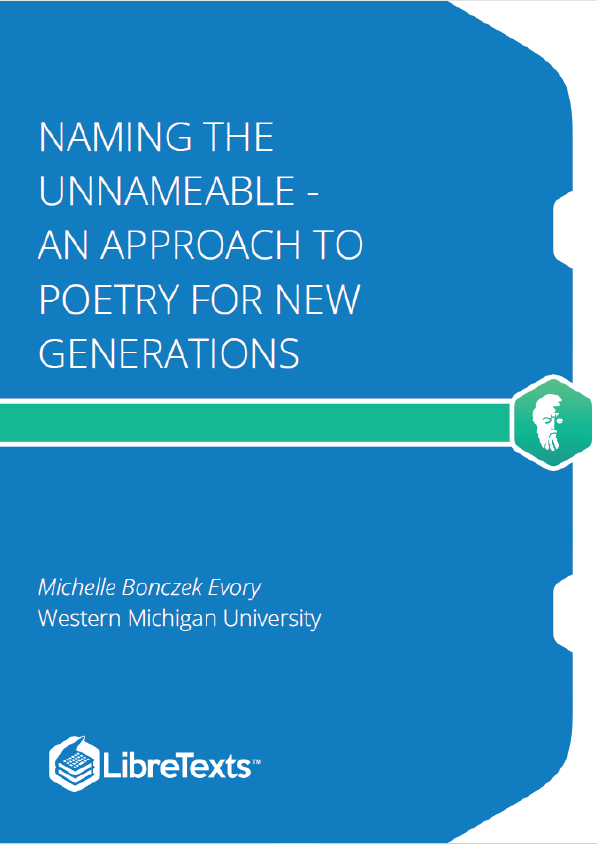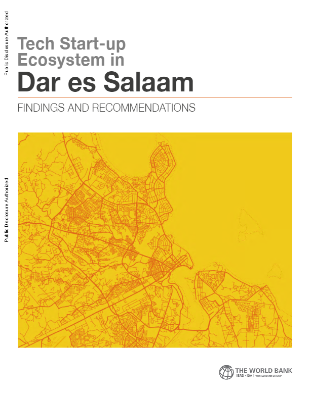Bruce Smith
When Emily Dickinson was asked where she thought poetry came from she replied “Philology and Cherubim.” Michelle Bonczek Evory’s book seems to hold both language and angels in mind with the clear emphasis on the poem being delivered from sources both immediate and accessible. Naming the Unnameable strikes the right tone for students and for instructors in that it enters the “poetry mind” in the act of making. It’s a creative writing text. It’s not interested in interpretation but the making of original poems. The text is clear in its goals, and its emphasis is with process and discovery oriented learning rather than, say, historical or critical learning. The preface states that it connects both to the “now” and to “the knowledge of what came before so we feel connected to poetry’s tradition and participate in its lineage.” Clearly the emphasis is on the now, the practitioner’s immersion in the craft and the making of poems from personal experience. The emphasis is on “spontaneity and freewriting.” I’m convinced that Michelle Bonczek Evory knows her stuff and I’m persuaded that she’s in touch with the New of the title’s New Generation.
Receptivity
The mindset of forgiveness that Patchett describes is similar to what William Stafford writes in his little essay “A Way of Writing” when he recommends that a writer must “be willing to fail” in order to be successful. As with Patchett’s essay, Stafford’s advice is all about giving yourself over to the writing process. One cannot expect a poem or any piece of writing to be perfect, or as Patchett says, to translate the “brilliant detail” one imagines and feels onto a page. As Stafford explains, you have to listen to what occurs to you in your mind and let the ideas “string out.” The process relies upon trust—you must trust that what you are doing will go somewhere. Here is an excerpt from Stafford’s essay (a link to which can be found in the resource section of this book):
One implication is the importance of just plain receptivity. When I write, I like to have an interval before me when I am not likely to be interrupted. For me, this means usually the early morning, before others are awake. I get pen and paper, take a glance out of the window (often it is dark out there), and wait. It is like fishing. But I do not wait very long, for there is always a nibble–and this is where receptivity comes in. To get started I will accept anything that occurs to me. Something always occurs, of course, to any of us. We can’t keep from thinking. Maybe I have to settle for an immediate impression: it’s cold, or hot, or dark, or bright, or in between! Or well, the possibilities are endless. If I put down something, that thing will help the next thing come, and I’m off. If I let the process go on, things will occur to me that were not at all in my mind when I started. These things, odd or trivial as they may be, are somehow connected. And if I let them string out, surprising things will happen. . . .
So, receptive, careless of failure, I spin out things on the page. And a wonderful freedom comes. If something occurs to me, it is all right to accept it. It has one justification: it occurs to me. No one else can guide me. I must follow my own weak, wandering, diffident impulses.
I am not sure if being “careless of failure,” as Stafford says, is a rule to apply to all aspects of life, but in creative acts such as writing, it is a necessity.
Silliness
The poet Richard Hugo has said that he wrote his book The Triggering Town in order to help the writer “with that silly, absurd, maddening, futile, enormously rewarding activity: writing poems.” And so, as he did then, I do so now.
Why prescribe silliness? For possibility. For new ways of thinking and writing. For fun. If you’re worried that you may not have it in you, don’t. According to Hugo, the fact that you are even taking a course in poetry already means that this quality, this playfulness, is already inherent in you. After all, as Hugo so eloquently puts it in The Triggering Town, “You have to be silly to write poems at all.”











